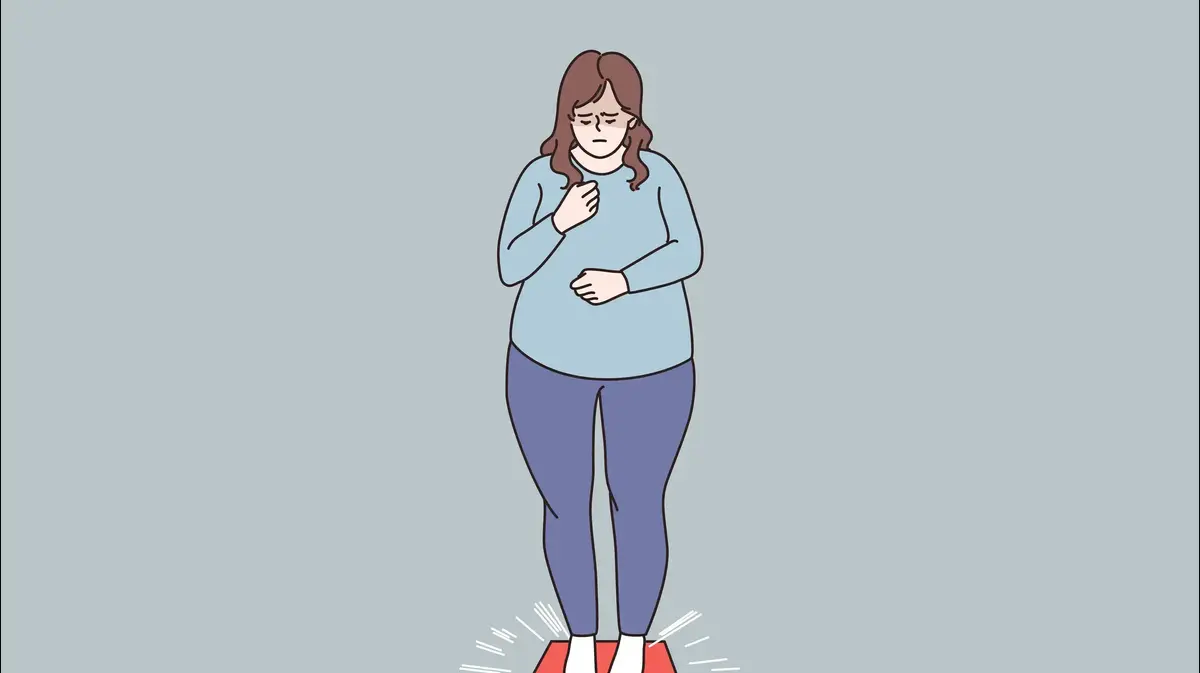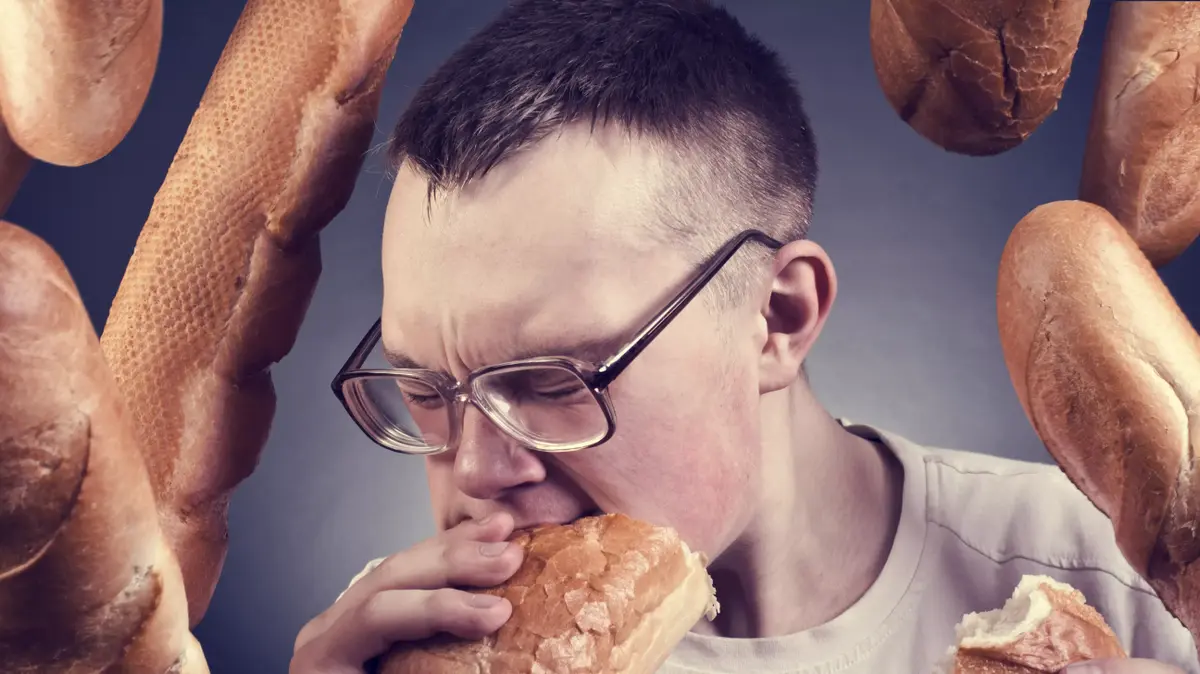Not your fault: this is the real reason for obesity
In obese people the mechanisms in the brain that are supposed to maintain a proper energy balance are not working properly.
And just like other brain-controlled functions (like blood pressure) - it can not be controlled by willpower alone.
so what are we doing?
Dr. Reli Reicher
13/05/2022
Friday, 13 May 2022, 08:12 Updated: 08:39
Share on Facebook
Share on WhatsApp
Share on Twitter
Share on Email
Share on general
Comments
Comments
Obesity is one of the most difficult problems facing humanity in the 21st century.
It is an epidemic that affects tens of percent of the population, with an alarming increase in obesity rates in children and adolescents.
Today even countries in Africa and the East, which we are used to linking hunger and nutritional deficiencies, are affected by increasing percentages of obesity in the population.
In fact, in the last 40 years not a single country in the world has experienced a decline in obesity rates.
More on Walla!
The simple test that will check if your weight is normal
To the full article
Obesity has many physical, emotional and social consequences, which adversely affect the quality and life expectancy of those who suffer from it.
Most of us are familiar with the link between metabolic disease (diabetes, cholesterol) and cardiovascular disease (atherosclerosis, heart failure, hypertension, stroke, etc.) and obesity, but in fact almost every system in the body is adversely affected by obesity, including: tendency to heartburn and drowsiness Breathing in sleep, joint and back pain, an increase in the incidence of malignant tumors (esophagus, stomach, colon, breast, uterus and ovaries, pancreas), an increase in the incidence of depression and anxiety, and more.
It has nothing to do with your willpower
Patients with obesity also suffer from social stigmas that link obesity to gluttony, lack of self-control, and lack of seriousness.
Obese people tend to be less promoted in the workplace and earn less compared to people with a normal body weight.
These stigmas lead to a very significant component of shame and guilt, which afflict patients in at least two ways: the first and most obvious is the mental anguish involved in attributing these traits to obese people.
In addition, patients who are ashamed of their condition and feel guilty also tend not to seek treatment and help in dealing with obesity - thus further aggravating their condition.
A quick visit to the obesity clinic will reveal CEOs, generals, past professional athletes, and other people whose last thing to blame is a lack of seriousness or lack of self-control.
People associate obesity with a lack of self-control, but this is not the case.
Woman sad about weight (Photo: ShutterStock)
It is important to note that even among the establishment and the medical staff there are problems in dealing with obesity.
For example, diabetes is in many ways similar to obesity.
The patient population is largely overlapping, both diseases cause a tendency to excess metabolic and cardiovascular disease, and both diseases require long-term treatment which requires the cooperation and dedication of the patient and the treating staff.
However, over 85 percent of diabetics are treated for their disease, compared to less than one percent of obese people who receive direct treatment for their disease.
The stigmas and misconceptions about obesity, as well as the tendency of medical staff not to treat obesity directly, are closely related to the fact that many do not perceive obesity as a disease at all.
This is despite the fact that there is an absolute consensus among scientists and medical practitioners dealing with obesity regarding it being an organic-physical disease for all intents and purposes.
More on Walla!
"We have a lot of power to do harm": the most important article you will read about childhood obesity
Let them: Fat people do not need you to save them
Ministry of Health presents: This is the way to fight the obesity epidemic
This is how you will improve your performance in bed - with an exclusive sale
Obesity is a complex chronic disease that results from many causes that ultimately lead to an imbalance in the hunger and satiety centers in the brain stem.
These centers receive electrical signals through nerves from the digestive system that go directly to the brain as well as hormones that are secreted from different parts of the digestive system and bind to receptors in those centers in the brain stem.
A delicate balance between "signs of satiety" and "signs of hunger" ultimately determines our eating behavior.
In obese people, these mechanisms, which are supposed to maintain a proper energy balance, do not work properly and lead to the symptoms of obesity - a poor and transient feeling of satiety and a constant and increased feeling of hunger.
Like other brain-controlled functions such as body temperature or blood pressure - our ability to control them or change them over time only through our willpower - is limited.
In fact, it can be stated that obesity as a disease leads to increased eating and weight gain, and not the other way around, as many perceive it.
Fat as a disease leads to increased eating and weight gain, and not the other way around.
Brain (Photo: Giphy, Sprogell)
A calorie-reduced diet only increases the feeling of hunger, and without the help of further treatment - the fight against obesity becomes excruciating and discouraging, as many of us know
For these reasons, all medical companies and professional associations dealing with obesity in Israel and around the world unequivocally recommend the use of a tool that will help patients persevere in their efforts to change their lifestyles - diet and exercise.
This change in lifestyle is the basis for any treatment for obesity, and any additional treatment for obesity aims to make it easier for the patient to persevere in changing lifestyles.
Therefore in obesity medicine there is no substitute for patient involvement and investment over time.
The tools we can offer our obese patients are pharmacological, endoscopic, and / or surgical treatment.
Different treatments have different mechanisms but all of them as mentioned are designed to facilitate the patient in adapting to a healthier lifestyle.
Successful treatment for obesity is a treatment that alleviates the symptoms of obesity - poor satiety and increased hunger, and leads to a feeling of earlier and longer lasting satiety.
A calorie-reduced diet only increases the feeling of hunger, and without the help of further treatment - the fight against obesity becomes excruciating and discouraging, as many of us know.
Dr. Reli Reicher is a senior physician in the Obesity and Endoscopic Bariatrics Unit at the Institute of Gastrointestinal and Liver Diseases at Ichilov Hospital.
health
My health
Doctor, what have I got
Tags
obesity
Obesity
Weight








